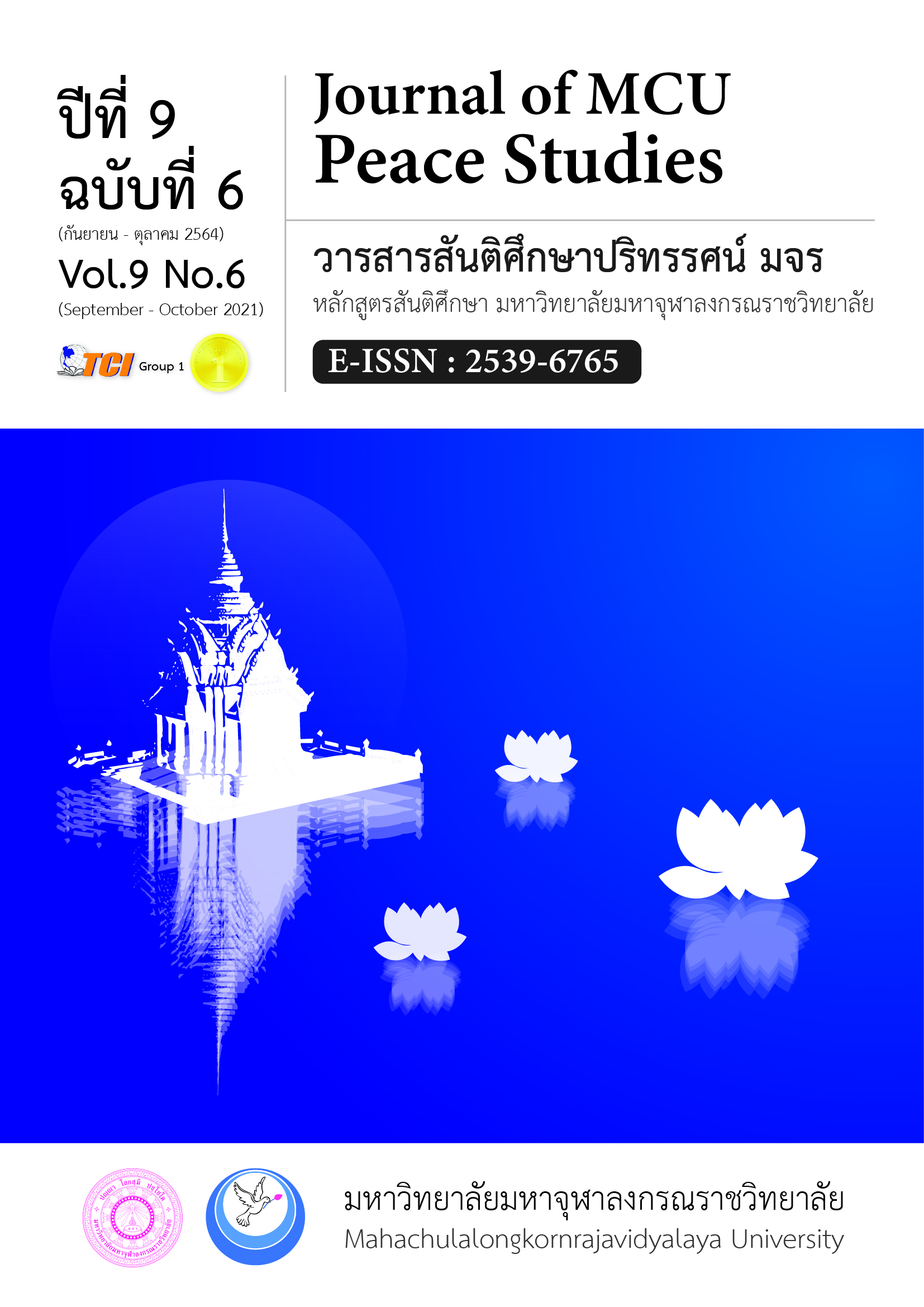English Learning Culture for Business Communication in 21st Century: A Buddhism Perspective
Main Article Content
Abstract
The purposes of this study were to study the social contexts of university students that affect English learning culture of university students in the 21st century era and to study English learning culture through Buddhism perspective. This research was done with 60 bachelor students who enrolled English for business communication class at Rajamangala University of Technology Lanna Lampang in the academic year of 2019. The result based on the first research objective showed that most students who enrolled English for business communication class are business entrepreneurs. The goal of this course was to apply the knowledge gained to their current and future business. In addition to non-classroom education, all students had access to online learning, regardless of whether online English language training website, Facebook or YouTube, including Line application to talk about learning English and other subjects. Students were interested in content that was related to their interests including business communication and some various issues. In addition, the result based on the second research objective showed that for Buddhism perspective, the related Buddhism principle was seven rules of being a good friend that students must be kind, generous, and honest.
Article Details
Views and opinions expressed in the articles published by The Journal of MCU Peace Studies, are of responsibility by such authors but not the editors and do not necessarily reflect those of the editors.
References
Dokkaew, N. (2008). Korean Social and Cultural Contexts as Shown on TV Drama Series “Full House”. Bangkok: Graduate School of Dhurakij Pundit University.
Nakfon, J. (2019). Social Context: Cultures and Values that Affect Education Policies and Plans. Retrieved May 4, 2019, from http://edu.stou.ac.th/EDU/UploadedFile/23723-13.pdf.
Panit, W. (2016). New Learning Culture. Retrieved May 9, 2019, from https://www.gotoknow.org/posts/611744.
Panit, W. (2012). Learning Skills of the 21st Century. Bangkok: Sodsi-Sakitwong Foundation.
Pinnitamai, W. (2019). Desirable Learning Culture: The Adjustment of Cultural Learning. Retrieved May 5, 2019 from http://www.stabundamrong.go.th/web/sarn/sarn31.pdf.
Sutassani, S. (2003). Human Relationship. Bangkok: Chulalongkorn University.
Weber, J. F. (2009). Using Exemplary Business Practices to Identify Buddhist and Confucian Ethical Value Systems. Business and Society Review, 4(114), 511-540.


